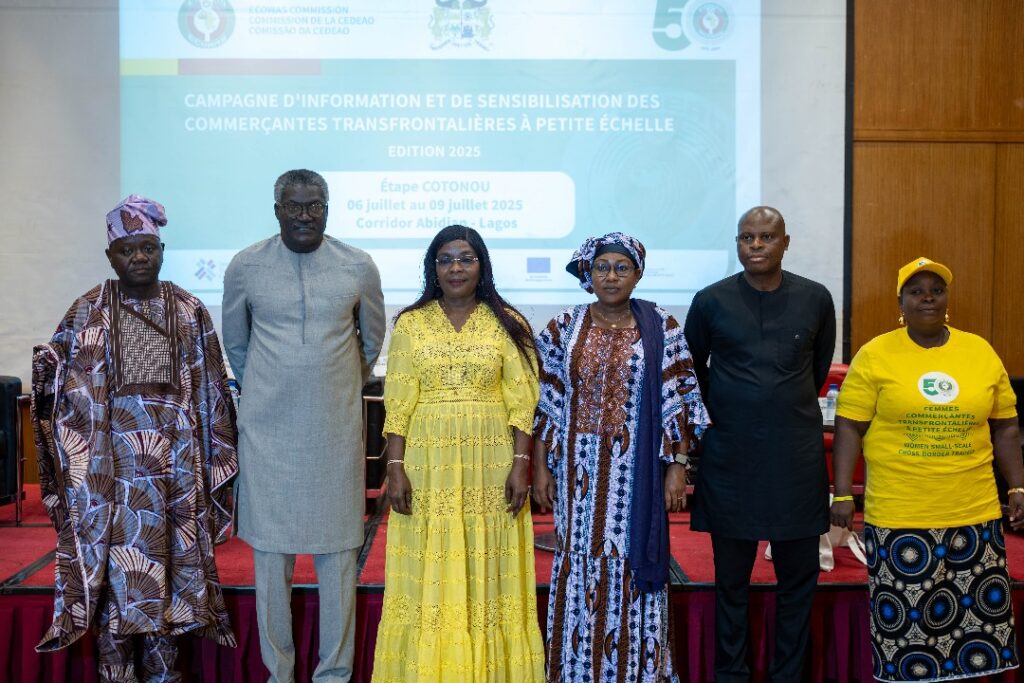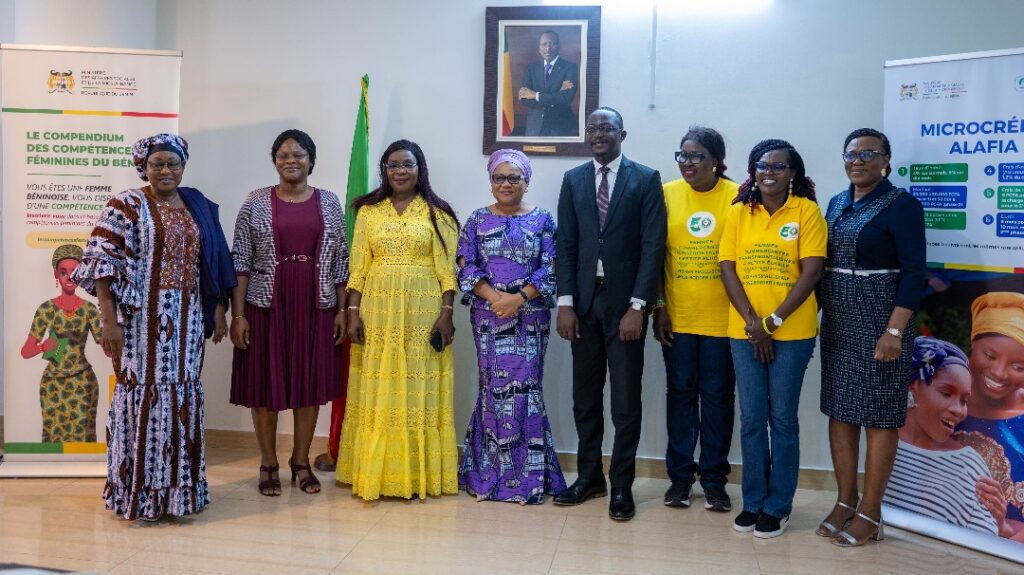Small Scale Cross Border Women Traders Lead as ECOWAS Launches Trade Campaign on Abidjan-Lagos Corridor.
By Raymond Enoch
In a strategic move to empower women and strengthen economic ties across West Africa, the Economic Community of West African States (ECOWAS) on July 8 launched the Benin phase of its Third Information and Awareness Campaign for Small-Scale Cross-Border Women Traders along the vital Abidjan-Lagos corridor.
Held in Cotonou, this edition of the campaign is part of a broader regional effort to increase knowledge, improve safety, and promote transparency in cross-border trade for women operating in one of Africa’s busiest commercial arteries. The initiative is spearheaded by the ECOWAS Commission’s Departments of Human Development and Economic Affairs and aims to tackle key barriers such as limited trade literacy, bureaucratic opacity at border posts, and persistent gender-based violence.

The Cotonou stage was marked by vibrant community engagement, including field visits to border trading zones, a public Town Hall meeting, and an official opening ceremony co-chaired by relevant Beninese government ministries. In attendance were ECOWAS Commissioner for Human Development and Social Affairs, Dr. Fatou Sow Sarr, the ECOWAS Resident Representative in Benin, representatives of national institutions, women traders’ associations, and international technical partners.
Addressing the gathering, Commissioner Sow Sarr emphasized the critical role women play in cross-border commerce and the regional economy at large. “This campaign is not just about raising awareness—it’s about breaking down the structural barriers that have long held women traders back. We are committed to ensuring their participation in the Abidjan-Lagos corridor is not only visible but impactful and protected,” she said.

Stretching from Côte d’Ivoire through Ghana, Togo, Benin, and into Nigeria, the Abidjan-Lagos corridor facilitates the movement of over 70% of West Africa’s trade. Yet, many of the small-scale women traders who operate along this route face persistent challenges, including harassment, extortion, and a lack of access to market information or financial tools. The ECOWAS initiative aims to change that narrative by equipping women with the tools, knowledge, and support they need to trade safely and effectively.
The campaign also provided a platform for dialogue and listening, where women traders shared their real-world experiences and outlined their most urgent needs—ranging from better infrastructure and simplified customs procedures to stronger protection against gender-based violence. These insights are expected to shape ECOWAS’s ongoing advocacy and policy efforts.
In building on previous editions of the campaign launched in other corridor countries, the Cotonou stop aims to consolidate gains and reinforce ECOWAS’s long-term vision of inclusive regional integration. Technical partners and national stakeholders pledged continued collaboration to ensure the initiative delivers tangible outcomes.
As the information and awareness campaign moves onward along the Abidjan-Lagos corridor, ECOWAS remains firm in its mission: to transform cross-border trade into a safer, more equitable, and empowering space for West African women—making them central to the region’s socio-economic transformation.








